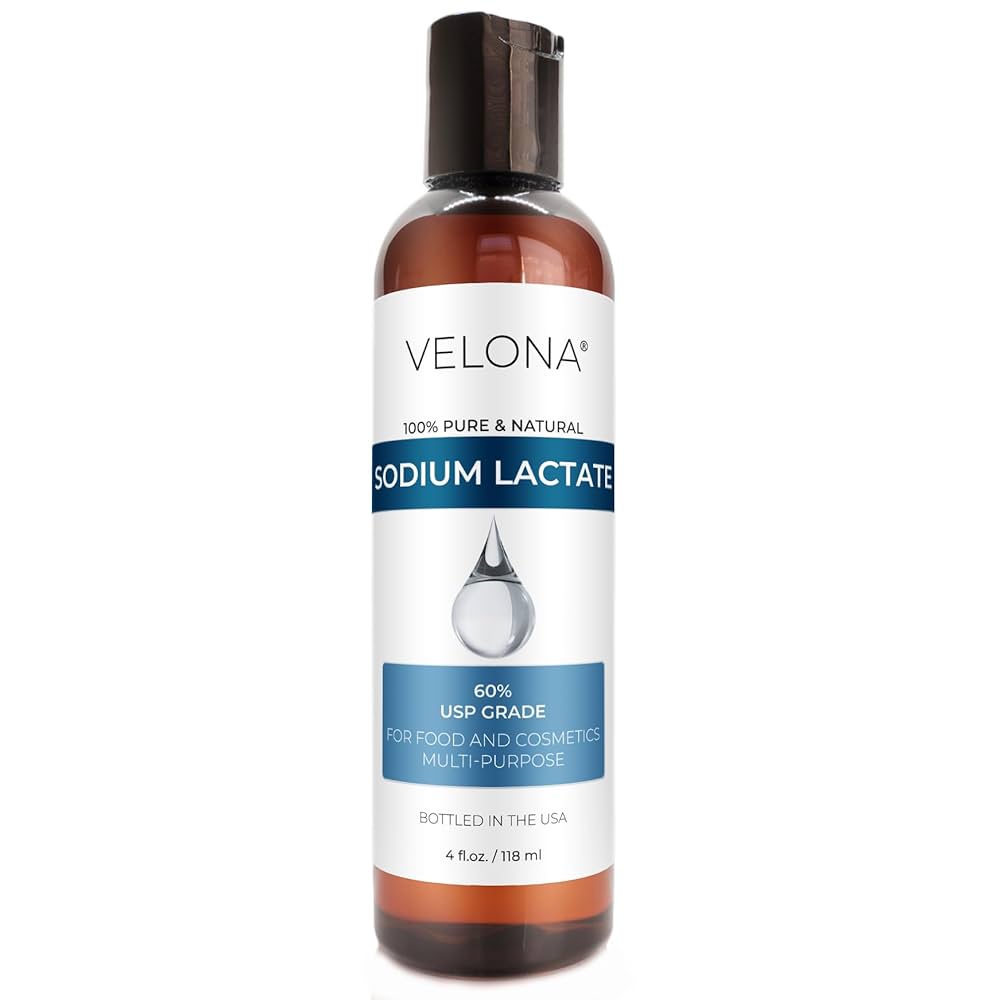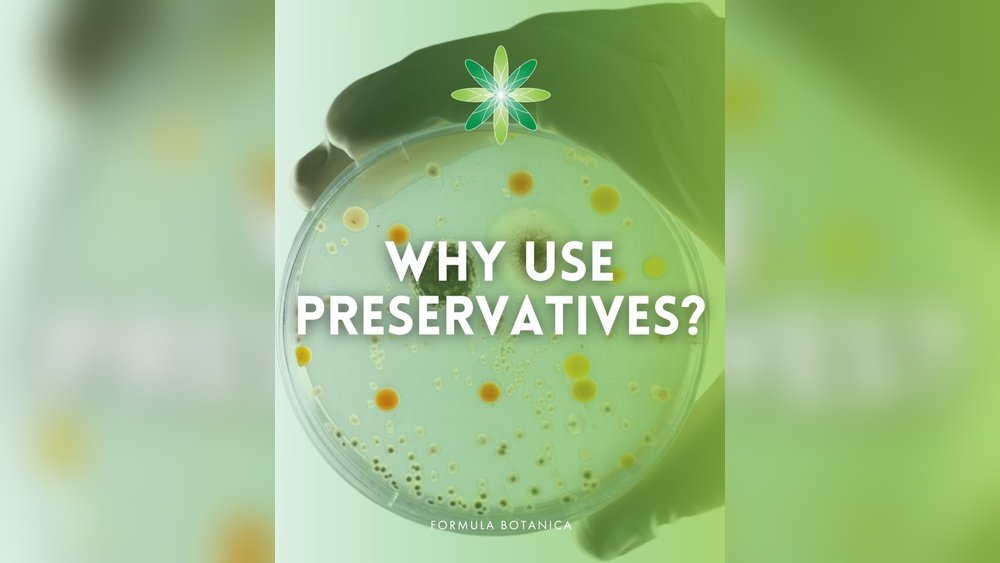Are you worried about the chemicals in your skincare products? You’re not alone.
Many people want cosmetics that keep their skin safe without causing irritation or harm. The key lies in choosing the right preservatives—those that protect your products but remain gentle on your skin. But which cosmetic preservatives are truly mild? You’ll discover the safest options that help keep your favorite creams and lotions fresh, without compromising your skin’s health.
Keep reading to find out how to protect both your beauty routine and your skin’s natural balance.
Role Of Preservatives In Cosmetics
Preservatives keep cosmetic products safe and fresh. They stop harmful bacteria and mold from growing. Without preservatives, creams, lotions, and shampoos can spoil quickly.
Preservatives also protect the product’s quality. They help maintain the color, smell, and texture. This ensures the product works as expected over time.
Choosing mild preservatives is important. Mild options reduce the risk of skin irritation. They keep products safe for sensitive skin types.
Preventing Microbial Growth
Microbes like bacteria and fungi can grow in cosmetics. This growth can cause infections or allergies. Preservatives stop these microbes from multiplying.
This protection makes products safer to use. It extends shelf life and prevents product waste.
Maintaining Product Stability
Preservatives help keep the product stable. They stop changes in color, smell, and texture. This keeps the product effective and pleasant to use.
Protecting Consumer Health
Safe preservatives reduce skin irritation risks. They protect users from allergic reactions. Mild preservatives support overall skin health.
Products with mild preservatives suit sensitive and delicate skin better. They offer safety without harsh chemicals.

Credit: www.amazon.com
Common Mild Preservatives
Preservatives keep cosmetic products safe from bacteria and mold. Some preservatives can irritate sensitive skin. Mild preservatives protect products without causing harsh reactions. They suit most skin types, especially delicate or sensitive skin. Below are some common mild preservatives often used in cosmetics.
Phenoxyethanol
Phenoxyethanol is a gentle preservative widely used in cosmetics. It works well against bacteria and yeast. It has a low risk of irritation for most people. This preservative also blends easily with many formulas.
Caprylyl Glycol
Caprylyl glycol is a skin-friendly preservative and moisturizer. It helps stop bacteria growth and keeps skin soft. Many natural skincare brands prefer this mild option. It also improves the texture of products.
Sodium Benzoate
Sodium benzoate is a mild preservative used in water-based products. It prevents the growth of fungi and bacteria. This ingredient is safe for sensitive skin types. It is often combined with other preservatives for extra protection.
Potassium Sorbate
Potassium sorbate is a gentle preservative derived from sorbic acid. It controls yeast and mold in cosmetics well. This preservative is less irritating than many synthetic options. It is commonly found in natural skincare products.
Ethylhexylglycerin
Ethylhexylglycerin is a mild preservative and skin conditioner. It enhances the effect of other preservatives. It also soothes and softens the skin. This ingredient is popular in formulas for sensitive skin.
Natural Alternatives To Synthetic Preservatives
Natural alternatives to synthetic preservatives offer gentle protection for cosmetic products. These options help keep products fresh without harsh chemicals. Many people prefer them for sensitive skin or eco-friendly choices.
Natural preservatives come from plants, essential oils, or minerals. They can slow down bacteria and mold growth safely. These mild preservatives work well for creams, lotions, and other cosmetics.
Plant-based Preservatives
Plant-based preservatives include extracts from herbs and seeds. Examples are rosemary extract and grapefruit seed extract. These ingredients have natural antibacterial and antioxidant properties. They help extend the shelf life of cosmetics naturally.
Essential Oils
Essential oils like tea tree, lavender, and thyme act as natural preservatives. They contain compounds that fight bacteria and fungi. These oils also add a pleasant scent to products. Use them carefully, as some oils may cause irritation.
Natural Antioxidants
Antioxidants protect cosmetics from damage caused by air and light. Vitamin E (tocopherol) is a common natural antioxidant. It helps prevent oils from going rancid. This keeps creams and lotions safe and effective longer.
Fermented Ingredients
Fermented ingredients like radish root ferment filtrate offer natural preservation. They create an environment that stops harmful microbes from growing. This method works well in natural skincare formulations.
Safety Profiles And Regulatory Standards
Safety profiles and regulatory standards are essential when choosing mild cosmetic preservatives. These factors ensure the ingredients protect products without harming the skin. Understanding these helps consumers find safe and gentle options.
Regulatory bodies set strict rules to test preservatives for safety. They review scientific data on irritation, allergies, and toxicity. Only preservatives that pass these tests gain approval for use.
Manufacturers must follow these standards to meet legal requirements. This keeps cosmetic products safe and effective for daily use. Consumers benefit from knowing these rules guide product safety.
Understanding Safety Profiles Of Mild Preservatives
Safety profiles describe how gentle a preservative is on the skin. They include studies on irritation and allergic reactions. Mild preservatives show low risk in these tests. This makes them suitable for sensitive skin and children’s products.
Some mild preservatives include phenoxyethanol, sodium benzoate, and ethylhexylglycerin. They maintain product freshness without strong side effects. Their safety profiles help manufacturers choose the right preservative.
Role Of Regulatory Standards In Cosmetic Safety
Regulatory standards come from agencies like the FDA and European Commission. These agencies monitor the use of preservatives in cosmetics. They set limits on concentration and usage conditions.
Standards help avoid harmful effects and ensure product quality. They require clear labeling so users know what ingredients are inside. This transparency supports safer choices for consumers.
How Regulations Affect Formulation Choices
Formulators pick preservatives that meet safety and regulatory rules. Mild preservatives often comply with strict guidelines. This keeps products effective and skin-friendly.
Regulations also encourage innovation in developing safer preservatives. Brands aim to balance preservation with gentleness. This benefits consumers with healthier cosmetic options.
Choosing Preservatives For Sensitive Skin
Choosing the right preservatives is key for sensitive skin care products. Sensitive skin reacts easily to harsh chemicals. Mild preservatives help keep products safe without causing irritation.
Preservatives protect products from bacteria and mold. Without them, products can spoil and harm skin. But strong preservatives may cause redness, itching, or dryness.
Using gentle preservatives balances safety with skin comfort. This section explores mild options suitable for sensitive skin.
What Makes A Preservative Mild?
Mild preservatives have a low risk of causing skin irritation. They do not disrupt the skin’s natural barrier. These preservatives work effectively at low concentrations.
They avoid common allergens and harsh chemicals. Their gentle nature suits products for babies and sensitive adults.
Common Mild Preservatives For Sensitive Skin
Phenoxyethanol is popular and well-tolerated. It preserves without strong irritation. It works well in water-based products.
Sodium benzoate is another mild choice. It is safe and gentle on the skin. Often used in natural and organic cosmetics.
Potassium sorbate helps prevent mold and yeast growth. It has a good safety profile for sensitive skin.
How To Use Mild Preservatives Effectively
Correct dosage is crucial to avoid irritation. Use the lowest effective amount. Test products on small skin areas before full use.
Combine mild preservatives with other safe ingredients. This boosts protection without harsh effects. Follow cosmetic guidelines for best results.

Credit: www.cosmeticsnow.com
Balancing Effectiveness And Mildness
Choosing the right cosmetic preservative means balancing two key points. The product must stay safe from germs. At the same time, the preservative should not irritate the skin. This balance is important for all skin types, especially sensitive skin.
Preservatives protect cosmetics from bacteria, mold, and yeast. Without them, products can spoil quickly. But some preservatives can cause redness, itching, or dryness. Mild preservatives offer protection with fewer side effects. Finding these helps create safer skincare and makeup.
What Makes A Preservative Mild?
Mild preservatives have low irritation potential. They are less likely to cause allergic reactions. These ingredients work gently without harming skin’s natural barrier. They also avoid strong chemical smells or harsh effects.
Common Mild Preservatives In Cosmetics
Sodium benzoate is one mild preservative often used. It works well against bacteria and fungi. Potassium sorbate is another option. Both are gentle and suitable for natural products. Phenoxyethanol is mild in low amounts and widely accepted.
Balancing Safety And Skin Comfort
Too weak a preservative risks product spoilage. Too strong can irritate skin. The goal is to use the lowest effective concentration. Proper formulation and testing ensure this balance. This approach keeps products safe and kind to skin.

Credit: www.amazon.com
Frequently Asked Questions
What Are Mild Cosmetic Preservatives?
Mild cosmetic preservatives are gentle ingredients that prevent product spoilage. They protect against bacteria and mold without irritating sensitive skin. These preservatives ensure product safety while maintaining skin health. Common mild preservatives include phenoxyethanol, ethylhexylglycerin, and certain natural extracts.
Why Choose Mild Preservatives In Cosmetics?
Mild preservatives reduce the risk of skin irritation and allergies. They are ideal for sensitive and delicate skin types. Using mild preservatives helps maintain product effectiveness without harsh chemicals. This choice supports safer, more skin-friendly cosmetic formulations.
Are Natural Preservatives Effective In Cosmetics?
Yes, natural preservatives like rosemary extract and grapefruit seed extract can be effective. They offer antimicrobial properties with lower irritation risks. However, their preservation strength may be less than synthetic options. Combining natural preservatives often improves product safety and longevity.
How Do Mild Preservatives Impact Sensitive Skin?
Mild preservatives minimize redness, itching, and allergic reactions. They are formulated to be non-comedogenic and hypoallergenic. This makes them safer for individuals prone to skin sensitivities. Properly chosen mild preservatives enhance comfort and skin tolerance.
Conclusion
Choosing mild cosmetic preservatives helps protect your skin safely. These preservatives keep products fresh without harsh chemicals. They reduce the chance of irritation or allergies. Always check ingredient labels to find gentle options. Mild preservatives support healthy skin and product quality.
Your skin deserves care with safe, effective ingredients. Keep learning about what goes in your cosmetics. This knowledge helps you make smart, gentle choices every day.
 Skip to content
Skip to content 